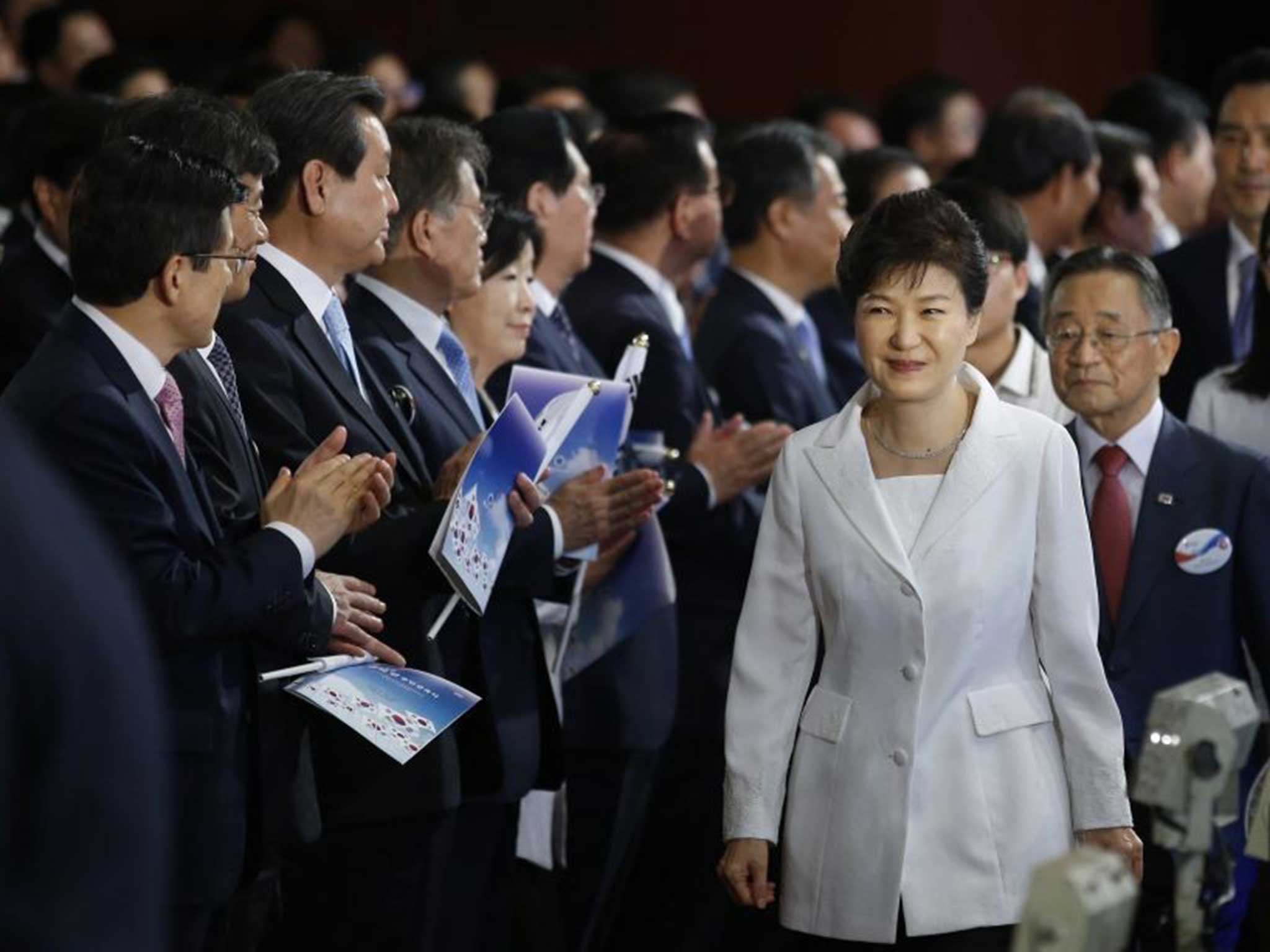South Korea pardons 6,000 criminals including business tycoons in move to help economy
Presidential pardons conincided with anniversary of end of WWII

Your support helps us to tell the story
From reproductive rights to climate change to Big Tech, The Independent is on the ground when the story is developing. Whether it's investigating the financials of Elon Musk's pro-Trump PAC or producing our latest documentary, 'The A Word', which shines a light on the American women fighting for reproductive rights, we know how important it is to parse out the facts from the messaging.
At such a critical moment in US history, we need reporters on the ground. Your donation allows us to keep sending journalists to speak to both sides of the story.
The Independent is trusted by Americans across the entire political spectrum. And unlike many other quality news outlets, we choose not to lock Americans out of our reporting and analysis with paywalls. We believe quality journalism should be available to everyone, paid for by those who can afford it.
Your support makes all the difference.South Korea’s president has pardoned more than 6,000 criminals, among them the head of one of the country’s third largest business groups jailed for embezzlement.
President Park Geun-hye said the decision to pardon 6,527 people was intended to improve the economy, but it is expected to fan popular sentiment the ruling business elite are above the law.
Among those pardoned is Chey Tae-won, chairman of SK Group, one of South Korea’s leading conglomerates, who was sentenced to four years imprisonment for embezzling company funds.
The government defended its decision to pardon Mr Chey, who remained SK Group’s chairman during his prison stint, and 13 other leading businessmen, as a means to revitalise the economy.
South Korea recently downgraded its prediction for growth from 3.8 per cent to 3.1 per cent, announcing a $20 billion fiscal stimulus package in the wake of the results.
President Park’s decision is also expected to renew intense debate surrounding the influence held by chaebol – powerful, family-controlled business groups – in South Korea.
It is the first time the president, elected in 2013, issued official pardons. It follows a 2013 speech in which she claimed she favoured limiting the power of presidential pardons.
The country remains reliant on chaebols’ ability to drive economic growth in the world’s 14 largest economy, with the four largest accounting for 40 per cent of the country’s stock option capitalisation.
Recent efforts by the current government to nurture start-ups and smaller companies have not taken root, The Wall Street Journal also noted.
President Park’s pardons coincide with the 70 anniversary of the end of World War Two and the Japanese occupation of the Korean peninsula.
Join our commenting forum
Join thought-provoking conversations, follow other Independent readers and see their replies
Comments